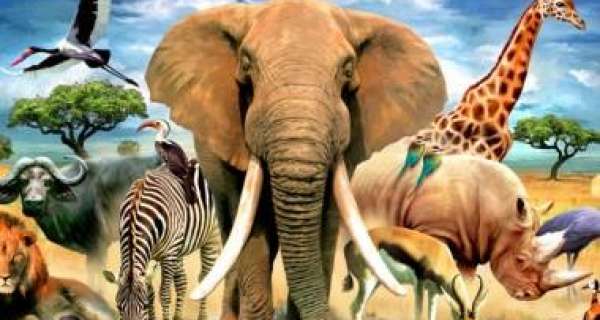
The names of animals, like the names of so many other things, didn't originate in one particular way. The names developed in many different ways, from many different sources.
For example, a strange name like "hippopotamus" is actually a descriptive name. In Greek, "hippos" means "horse" and "potamus" means "river." So the hippopotamus was a "river horse." "Rhinoceros" came from two Greek words, "rinos," the nose, and "keras," a horn. That's just what this creature has: a horn on the nose! "Leopard" is from the Latin "leopardus"—which meant a "spotted lion."
Some names of animals that we use are based on names used in other places. "Camel" comes from the Arabic "gamel," and "giraffe" from the Arabic "zirafoh," meaning "long neck." The name "ox" is an Icelandic term which became "oxa" in Anglo-Saxon. And "cow" also comes from Iceland, where the name was "ku." The name "bull" comes from the Anglo-Saxon verb "belan," which meant to roar, to bellow.
"Deer" comes from the Anglo-Saxon "deor," which meant "a wild animal." We get our name "cat" from the French "chat," which came from the Latin "gata." "Mouse" comes from the Anglo-Saxon "mus." The name "poodle" has an interesting origin. It comes from the German "pudel," short for "pudelhund," which meant "a dog that splashes in water." The duck is so named because this bird "ducks" in the water, from an old English word "duce," a "diver".
These are only a few names with explanations of how they started. But you can see that animals got their names in many different ways.